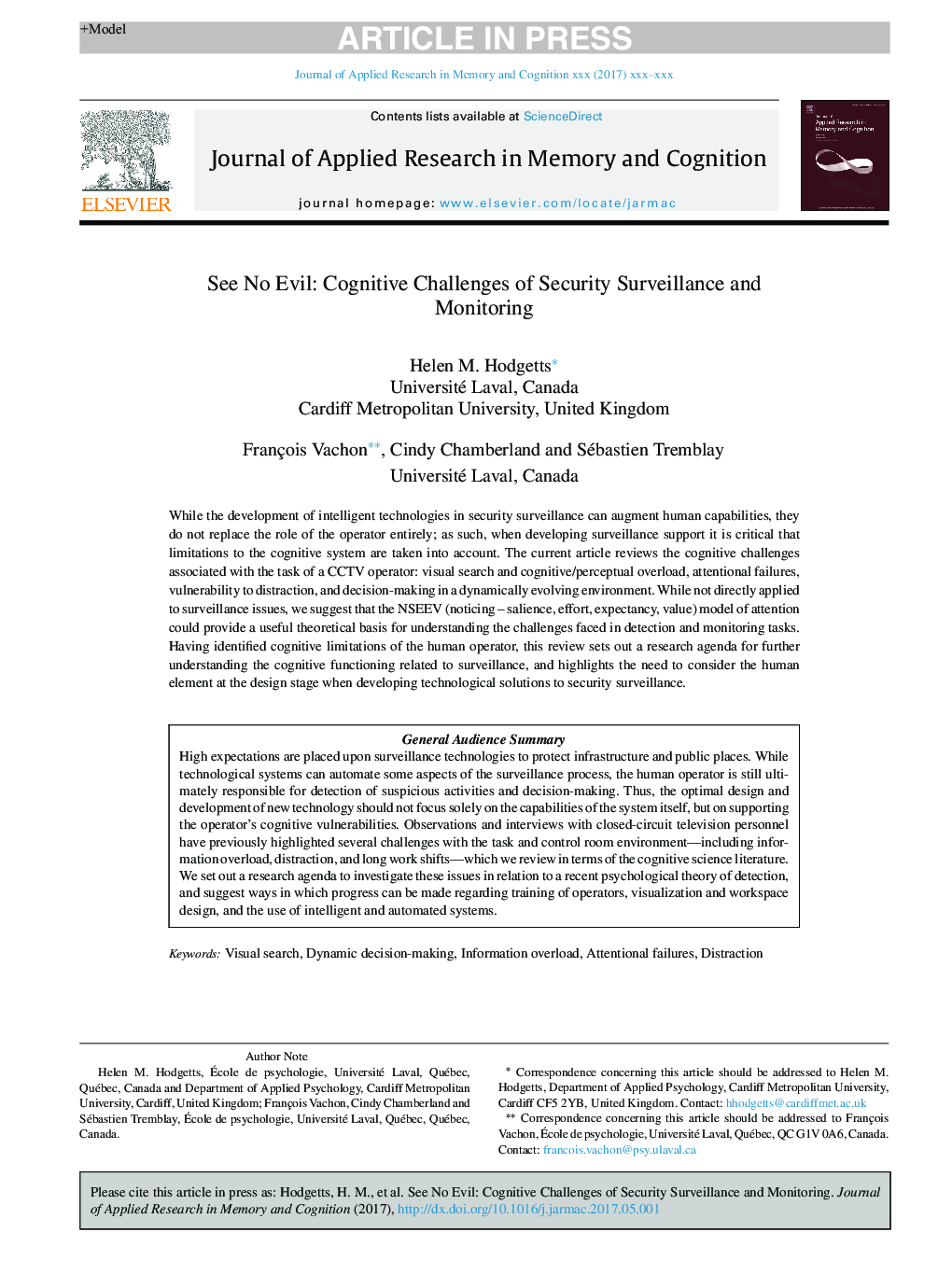| Article ID | Journal | Published Year | Pages | File Type |
|---|---|---|---|---|
| 5033964 | Journal of Applied Research in Memory and Cognition | 2017 | 14 Pages |
Abstract
While the development of intelligent technologies in security surveillance can augment human capabilities, they do not replace the role of the operator entirely; as such, when developing surveillance support it is critical that limitations to the cognitive system are taken into account. The current article reviews the cognitive challenges associated with the task of a CCTV operator: visual search and cognitive/perceptual overload, attentional failures, vulnerability to distraction, and decision-making in a dynamically evolving environment. While not directly applied to surveillance issues, we suggest that the NSEEV (noticing - salience, effort, expectancy, value) model of attention could provide a useful theoretical basis for understanding the challenges faced in detection and monitoring tasks. Having identified cognitive limitations of the human operator, this review sets out a research agenda for further understanding the cognitive functioning related to surveillance, and highlights the need to consider the human element at the design stage when developing technological solutions to security surveillance.
Related Topics
Social Sciences and Humanities
Psychology
Applied Psychology
Authors
Helen M. Hodgetts, François Vachon, Cindy Chamberland, Sébastien Tremblay,
